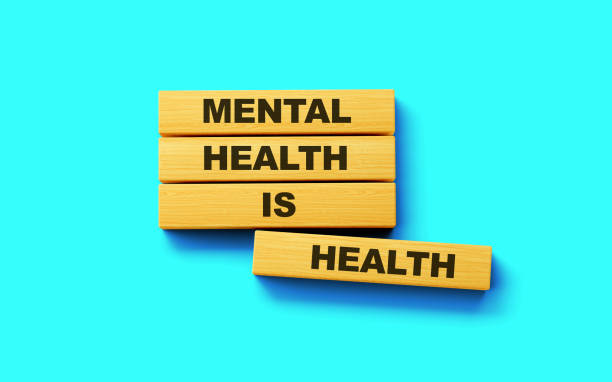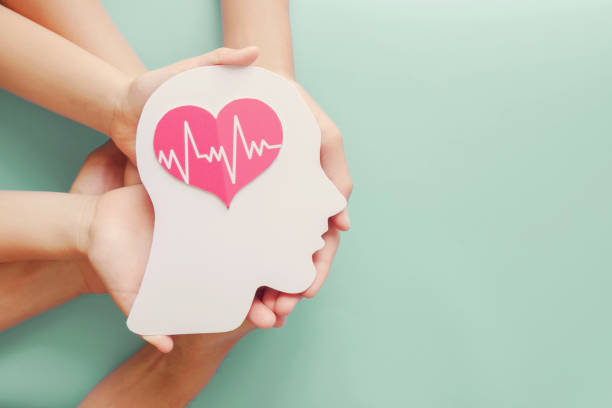Mental health awareness has become an essential topic in today’s society, as increasing numbers of people recognize the importance of mental well-being. Mental health encompasses our emotional, psychological, and social well-being, affecting how we think, feel, and act. It also helps determine how we handle stress, relate to others, and make choices. Promoting mental health awareness involves understanding the various mental health conditions, reducing stigma, and encouraging people to seek help when needed.
The Importance of Mental Health Awareness

Mental health is crucial at every stage of life, from childhood and adolescence through adulthood. Here are some key reasons why mental health awareness is important:
- Early Detection and Treatment: Awareness can lead to early detection of mental health issues. Early intervention often results in better outcomes and can prevent conditions from worsening.
- Reducing Stigma: Many people with mental health issues face stigma and discrimination. Awareness can help break down these barriers, making it easier for individuals to seek help and support.
- Promoting Overall Well-Being: Mental health is a significant component of overall health. Addressing mental health can improve physical health, productivity, and quality of life.
Common Mental Health Conditions

Understanding the different types of mental health conditions can foster empathy and support for those affected. Some common mental health conditions include:
- Anxiety Disorders: These include generalized anxiety disorder, panic disorder, social anxiety disorder, and specific phobias. Symptoms may include excessive worry, fear, and avoidance behaviors.
- Depressive Disorders: Major depressive disorder and dysthymia are characterized by persistent feelings of sadness, hopelessness, and loss of interest in activities.
- Bipolar Disorder: This condition involves mood swings ranging from depressive lows to manic highs.
- Schizophrenia: A severe mental disorder that affects a person’s ability to think, feel, and behave clearly. Symptoms may include hallucinations, delusions, and disorganized thinking.
- Post-Traumatic Stress Disorder (PTSD): This disorder can develop after exposure to a traumatic event. Symptoms may include flashbacks, severe anxiety, and uncontrollable thoughts about the event.
Promoting Mental Health Awareness

Promoting mental health awareness involves several strategies and initiatives:
- Education: Providing education about mental health can dispel myths and misconceptions. Schools, workplaces, and community centers can play a crucial role in educating the public.
- Open Conversations: Encouraging open conversations about mental health can reduce stigma and create a supportive environment. Sharing personal stories and experiences can also be powerful.
- Support Systems: Building strong support systems, including family, friends, and professional help, is vital. Support groups and hotlines can provide additional resources.
- Access to Care: Ensuring access to mental health care services is essential. This includes affordable therapy, counseling, and psychiatric care.
- Self-Care Practices: Promoting self-care practices such as regular exercise, healthy eating, adequate sleep, and mindfulness can improve mental well-being.
The Role of Social Media and Technology

Social media and technology have both positive and negative impacts on mental health awareness:
- Positive Impact: Social media can be a platform for raising awareness, sharing information, and creating supportive communities. It can connect individuals with similar experiences and provide access to resources.
- Negative Impact: However, excessive use of social media can contribute to feelings of anxiety, depression, and loneliness. It’s essential to promote healthy digital habits and balance online activities with offline interactions.
Conclusion
Mental health awareness is vital for fostering a society where everyone can thrive. By understanding mental health conditions, reducing stigma, and promoting supportive environments, we can improve the well-being of individuals and communities. Remember, mental health is just as important as physical health, and seeking help is a sign of strength, not weakness. Let’s continue to educate ourselves, support one another, and prioritize mental well-being.
Frequently Asked Questions (FAQ)
1. What is mental health awareness?
Mental health awareness involves recognizing and understanding mental health conditions, promoting mental well-being, reducing stigma, and encouraging individuals to seek help when needed.
2. Why is mental health awareness important?
It helps in early detection and treatment of mental health issues, reduces stigma, and promotes overall well-being, leading to improved quality of life.
3. What are some common mental health conditions?
Common conditions include anxiety disorders, depressive disorders, bipolar disorder, schizophrenia, and post-traumatic stress disorder (PTSD).
4. How can I promote mental health awareness?
You can promote awareness by educating yourself and others, encouraging open conversations, building support systems, ensuring access to care, and practicing self-care.
5. How does social media impact mental health?
Social media can positively impact mental health by raising awareness and creating supportive communities, but excessive use can contribute to anxiety, depression, and loneliness.
6. What are some self-care practices for mental health?
Regular exercise, healthy eating, adequate sleep, mindfulness, and connecting with loved ones are effective self-care practices for maintaining mental well-being.
7. How can I support someone with a mental health condition?
Listen without judgment, offer emotional support, encourage them to seek professional help, and educate yourself about their condition to provide informed assistance.
8. When should I seek help for mental health issues?
Seek help if you experience persistent feelings of sadness, anxiety, hopelessness, or if mental health issues interfere with your daily life. Early intervention can lead to better outcomes.





